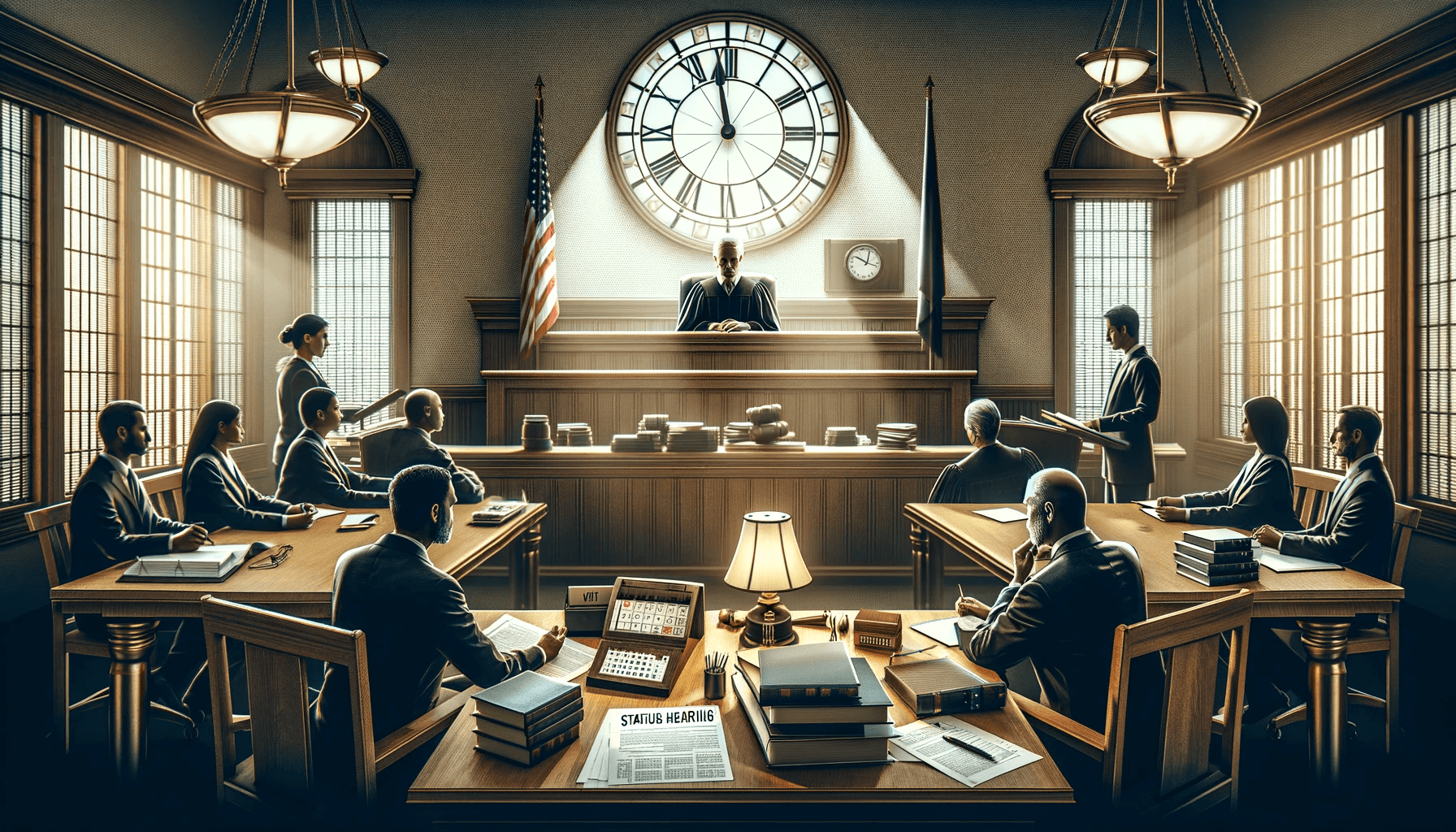Ever found yourself wondering what goes on in the courtroom outside of those high-drama trial scenes you see on TV? Let’s talk about one of the less flashy but crucial parts of the legal process in criminal cases: the status hearing.
Breaking Down the Status Hearing
A status hearing, sometimes called a case management conference, is like a check-up for a criminal case. It’s not about deciding guilt or innocence. Instead, it’s about ensuring everything’s on track for a fair and timely trial.
The Purpose: Keeping the Case Moving
The main goal of a status hearing is to keep the case moving smoothly. Think of it as a project management meeting, but for legal proceedings. The judge, along with the defense and prosecution, reviews the progress of the case, discusses any issues, and plans the next steps.
Key Players in the Courtroom
In a status hearing, you’ve got the usual courtroom lineup: the judge, the defense attorney, and the prosecutor. Sometimes, the defendant is required to be there too, but not always. It depends on the court and the case.
What Happens During a Status Hearing
So, what goes down at these hearings? A few key things:
- Case Progress: How far along is the case? Are there any hold-ups?
- Evidence and Discovery: Is all the evidence in? Any disputes about what should be included?
- Plea Bargains: Sometimes, plea deals are discussed or finalized.
- Scheduling: Setting dates for future hearings, motions, or the trial itself.
- Legal Issues: Addressing any legal snags that could affect how the case proceeds.
Why Status Hearings Matter
You might think status hearings are just administrative fluff, but they’re pretty important. They ensure a defendant’s right to a speedy trial isn’t trampled by unnecessary delays. Plus, they help iron out any procedural kinks that could complicate things later.
A Peek Behind the Legal Curtain
Status hearings give us a peek into the everyday workings of the legal system. They’re part of the due diligence that ensures justice is served correctly, not just swiftly.
Not a Decision-Maker, But a Path Paver
Remember, no one’s deciding guilt or innocence at a status hearing. It’s more about setting the stage for the main act – the trial. These hearings make sure that when the trial comes, it can run without a hitch.
In Conclusion: The Unsung Hero of the Courtroom
In sum, a status hearing in a criminal case is an unsung hero of the judicial process. It’s where the groundwork is laid for the critical decisions that come later. Understanding this aspect of criminal proceedings gives us a fuller picture of the justice system – a complex machine where every cog, no matter how small, plays a vital role.









Leave a Reply